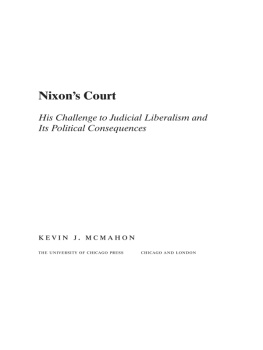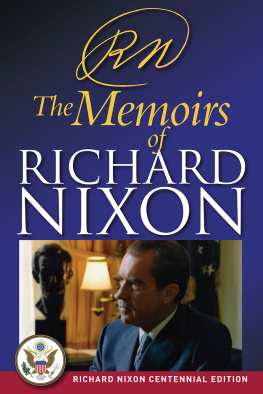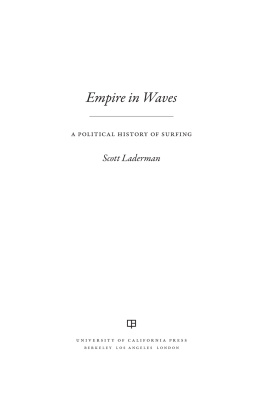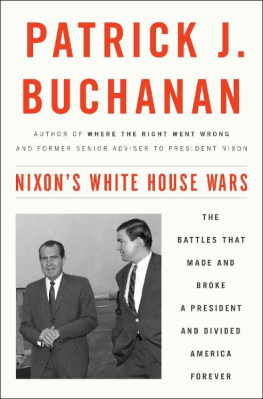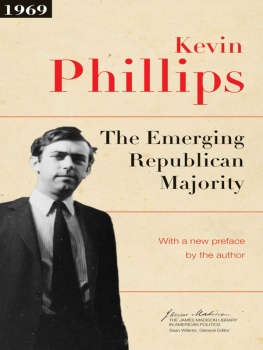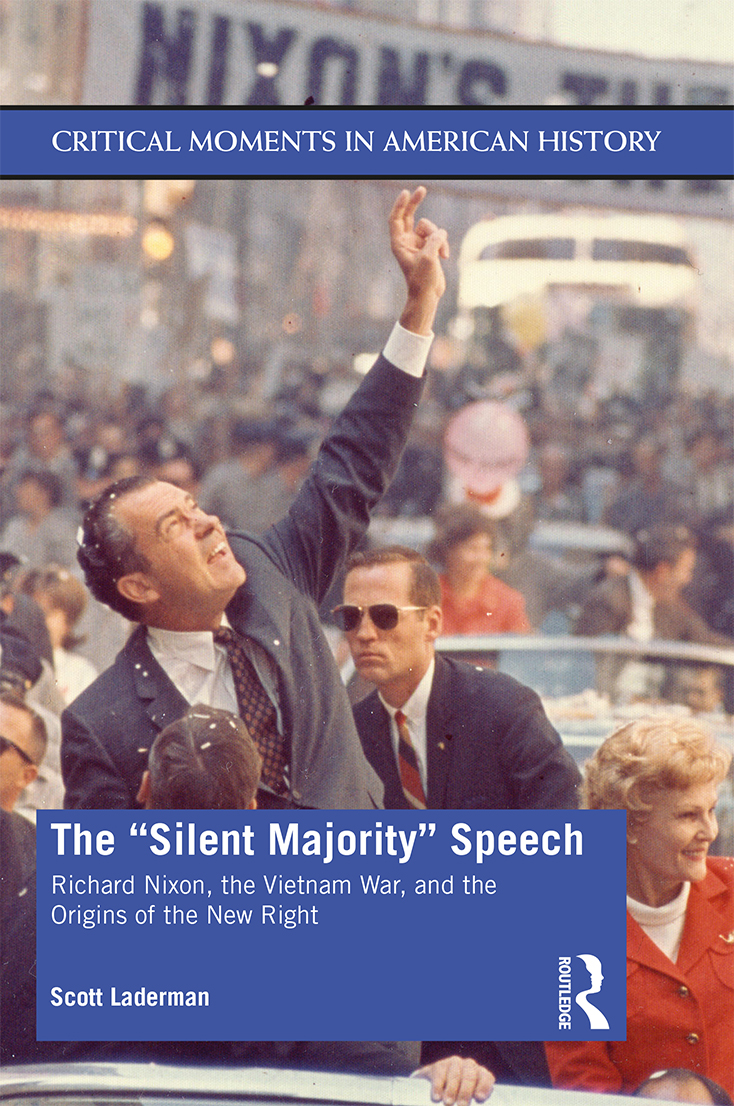
Contents
Landmarks
The Silent Majority Speech
The Silent Majority Speech treats Richard Nixons address of November 3, 1969, as a lens through which to examine the latter years of the Vietnam War and their significance to U.S. global power and American domestic life.
The book uses Nixons speech which introduced the policy of Vietnamization and cited the so-called bloodbath theory as a justification for continued U.S. involvement in Southeast Asia as a fascinating moment around which to build an analysis of the last years of the war. For Nixons strategy to be successful, he requested the support of what he called the great silent majority, a term that continues to resonate in American political culture. Scott Laderman moves beyond the wars final years to address the administrations hypocritical exploitation of moral rhetoric and its stoking of social divisiveness to achieve policy aims. Laderman explores the antiwar and pro-war movements, the shattering of the liberal consensus, and the stirrings of the right-wing resurgence that would come to define American politics.
Supplemental primary sources make this book an ideal tool for introducing students to historical research. The Silent Majority Speech is critical reading for those studying American political history and U.S.Asian/Southeast Asian relations.
Scott Laderman is a professor of history at the University of Minnesota, Duluth. His previous books include Tours of Vietnam: War, Travel Guides, and Memory (2009) and Empire in Waves: A Political History of Surfing (2014).
Critical Moments in American History
Edited by William Thomas Allison, Georgia Southern University
McCarthyism
The Realities, Delusions and Politics Behind the 1950s Red Scare
Jonathan Michaels
Three Mile Island
The Meltdown Crisis and Nuclear Power in American Popular Culture
Grace Halden
The 1916 Preparedness Day Bombing
Anarchy and Terrorism in Progressive-Era America
Jeffrey A. Johnson
America Enters the Cold War
The Road to Global Commitment, 19451950
Kevin Grimm
Title IX
The Transformation of Sex Discrimination in Education
Elizabeth Kaufer Busch & William E. Thro
The Silent Majority Speech
Richard Nixon, the Vietnam War, and the Origins of the New Right
Scott Laderman
When Women Won the Vote
The Final Decade, 1910-1920
Sandra Opdycke
For more information about this series, please visit: https://www.routledge.com
The Silent Majority Speech
Richard Nixon, the Vietnam War, and the Origins of the New Right
Scott Laderman

First published 2020
by Routledge
52 Vanderbilt Avenue, New York, NY 10017
and by Routledge
2 Park Square, Milton Park, Abingdon, Oxon, OX14 4RN
Routledge is an imprint of the Taylor & Francis Group, an informa business
2020 Taylor & Francis
The right of Scott Laderman to be identified as author of this work has been asserted by him in accordance with sections 77 and 78 of the Copyright, Designs and Patents Act 1988.
All rights reserved. No part of this book may be reprinted or reproduced or utilized in any form or by any electronic, mechanical, or other means, now known or hereafter invented, including photocopying and recording, or in any information storage or retrieval system, without permission in writing from the publishers.
Trademark notice: Product or corporate names may be trademarks or registered trademarks, and are used only for identification and explanation without intent to infringe.
Library of Congress Cataloging-in-Publication Data
A catalog record for this title has been requested
ISBN: 978-0-415-34746-4 (hbk)
ISBN: 978-0-415-34749-5 (pbk)
ISBN: 978-1-315-22939-3 (ebk)
Typeset in Bembo and Helvetica Neue
by codeMantra
Welcome to the Routledge Critical Moments in American History series. The purpose of this new series is to give students a window into the historians craft through concise, readable books by leading scholars, who bring together the best scholarship and engaging primary sources to explore a critical moment in the American past. In discovering the principal points of the story in these books, gaining a sense of historiography, following a fresh trail of primary documents, and exploring suggested readings, students can then set out on their own journey, to debate the ideas presented, interpret primary sources, and reach their own conclusions just like the historian.
A critical moment in history can be a range of things a pivotal year, the pinnacle of a movement or trend, or an important event such as the passage of a piece of legislation, an election, a court decision, and a battle. It can be social, cultural, political, or economic. It can be heroic or tragic. Whatever they are, such moments are by definition game changers, momentous changes in the pattern of the American fabric, and paradigm shifts in the American experience. Many of the critical moments explored in this series are familiar; some less so.
There is no ultimate list of critical moments in American history any group of students, historians, or other scholars may come up with a different catalog of topics. These differences of view, however, are what make history itself and the study of history so important and so fascinating. Therein can be found the utility of historical inquiry to explore, to challenge, to understand, and to realize the legacy of the past through its influence of the present. It is the hope of this series to help students realize this intrinsic value of our past and of studying our past.
William Thomas Allison
Georgia Southern University
My completion of this volume was made immensely easier because of the important research done by scholars before me. I wish to especially acknowledge the work of Jeffrey Kimball and David Schmitz, whose books on Nixons Vietnam War offer a far fuller account than the one found in these pages. Not only did their findings influence my own thinking, but their footnotes saved me countless hours I would have otherwise had to spend searching through innumerable sources on my own.
The staff at the National Archives in College Park, Maryland, has consistently been helpful. And I cannot say thank you enough to the librarians especially Kay Westergren, who was always quick to get me books through interlibrary loan at the University of Minnesota, Duluth (UMD). I am grateful, too, to the College of Liberal Arts at UMD, which helped to fund the research that made The Silent Majority Speech possible.
At Routledge, I want to thank Genevieve Aoki, Dan Finaldi, Zo Forbes, Margo Irvin, Eve Mayer, Ted Meyer, and Kimberley Smith for their interest in this book and their assistance in seeing it through to completion. My thanks also to series editor Bill Allison for the feedback and thumbs up. And my sincere appreciation to Derek Gottlieb for his work on the index.
As always, my deepest debt is owed to my wife Jill and my two daughters, Izzy and Sam. Their love and support made years of studying the Nixon administration tolerable.
Next page

